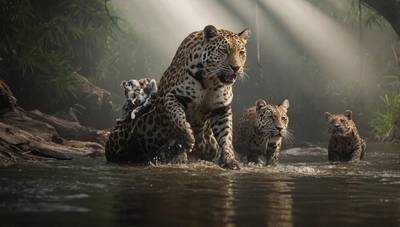US proposed looser interpretation of the law protecting threatened species
The Trump administration proposed on Wednesday a major shift in how threatened species are taken into account when agency actions are made. This was done by removing the regulatory language which aims to prevent habitat degradation.
This move aligned itself with the pledge of President Donald Trump to reduce what he calls burdensome federal regulations on businesses.
When deciding whether or not to issue permits for oil and natural gas, mining, transmission of electric power and other operations, agencies must consider the Endangered Species act. Federal law requires agencies to assess the environmental impact of any proposed industrial operations that may threaten endangered species.
In a regulatory announcement, the U.S. Fish and Wildlife Service and National Marine Fisheries Service (divisions of Departments of Interior and Commerce) proposed to remove the definition of harm from their ESA regulations.
The notice stated that these definitions, including habitat modification, expand the ESA's intent, which prohibits taking endangered animals or fish.
The ESA defines "take" as "to harass or harm, pursue or hunt, to shoot, wound or kill, to trap, capture or collect or to try to engage in such conduct."
It is believed that the ESA, which was signed into law in 1972, helped save a number of animals and plants, including the California condor, bald eagle and many others, from extinction.
After the Federal Register publishes the proposal, which is expected to be on Thursday, the public has 30 days to comment on it.
Requests for comments from officials at the Commerce and Interior departments were not answered.
Environmental groups claimed that the action would harm species protected by law.
Noah Greenwald said that the Trump administration was allowing habitat destruction to be a major problem.
Nobody voted to exterminate spotted owls or Florida panthers, nor did they vote to eliminate grizzly and grizzly beavers. (Reporting and editing by Nichola Green;
(source: Reuters)


